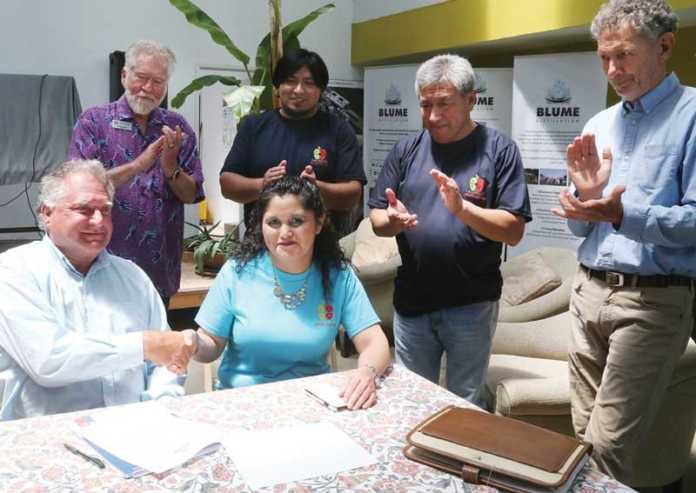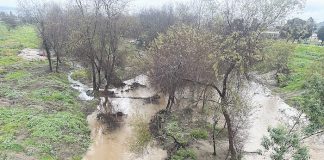WATSONVILLE — A Watsonville company best known for converting crop by-products into clean-burning fuel has gone global.
Blume Distillation at 371 Calabasas Road has since 2015 produced clean-burning ethanol from crop waste and other by-products most agricultural industries would consider garbage.
The company also produces systems that allow others to make their own fuel.
That technology recently caught the eye of the Mapuche Tribe in Chile, a people known for adhering to a traditional lifestyle.
With an estimated 2 million members, the Mapuche are the country’s largest indigenous tribe. They comprise 13 percent of the population, and their lands stretch from Chile through Argentina and into Patagonia.
Their lifestyle, however, includes burning wood for cooking and heat. Smoke from that activity is considered harmful to both people and the environment.
Hoping to reduce the tribe’s reliance on wood, a group representing the Mapuche visited Blume Friday to help bring the company’s distillation devices to Chile.
“They are trying to improve the living conditions for the locations where they live,” founder David Blume said.
The group — the Antonio Rapiman Cooperative — signed an agreement that will allow a group of engineers from Blume to travel to Chile and conduct a study that will lay the groundwork for what eventually will be eight distilleries through the Mapuche territory.
“Today’s agreement is the first step,” Blume said.
The technology is expected to benefit the tribe, which grows five types of apples that go into juice production. The trouble is the piles of apples remaining from the juicing process, said Antonio Rapiman Cooperative President Maria Rapiman.
The leftover apples can be used to make clean-burning fuel, and the technology could help Chile ease its reliance on importing foreign oil.
“We want to look for a new business, to open our horizons,” Rapiman said through a translator. “We think this process will help not only us, but our community too. We want to improve our quality of life.”













